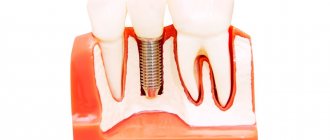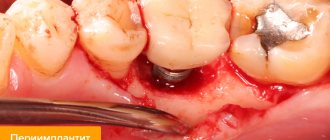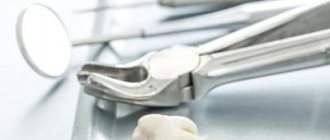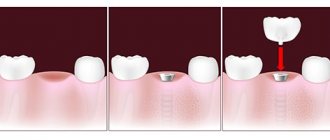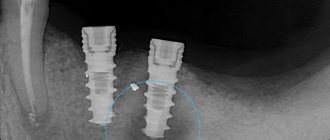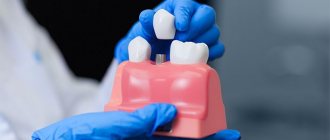Implantation, like any surgical operation, requires careful preparation. It is important to comply with certain rules and restrictions. During the consultation, the doctor prescribes the necessary tests and gives recommendations on nutrition and lifestyle in general. Many people are interested in the problem of quitting smoking and drinking alcohol in the postoperative period. To understand this issue, it is necessary to understand the direct influence of alcohol and smoking on the process of rehabilitation and implantation.
What could be the consequences?
Most patients believe that the success of this operation depends solely on the specialist who implements the dental implants. If complications occur or the implant is rejected, almost 70% of people begin to blame the doctor and the dental clinic as a whole: they use cheap implants, save on consumables, doctors are not knowledgeable enough about this issue, etc.
In fact, this is not true at all. To a large extent, everything depends on the characteristics of the body and the patient’s behavior during the rehabilitation period. Some bad habits can seriously affect the success of surgery; let’s look at each of them in more detail.
What else is important to take into account in the postoperative period
The recovery period must be accompanied by compliance with the following rules:
- Limit driving for 24 hours after the procedure. Post-surgery stress can lead to loss of alertness, sleep, and road accidents.
- No smoking. Smoking causes a burn to the oral mucosa and causes the breakdown of blood clots. Plaque from cigarettes creates a cariogenic situation in the mouth.
- After surgery, you should not drink until the edges of the wound stick together. This happens within a few hours.
- Avoid eating until the local anesthesia wears off. Chewing under anesthesia can damage healthy tissue.
- Follow a diet during the period of implantation. Avoid salty, hot, spicy, hard and sticky foods.
- Do not exercise for 3 days after surgery.
- Avoid thermal procedures (baths, saunas, solariums, do not take hot showers or baths for 3 days).
- Avoid chewing on the implantation side.
- Do not disturb the wound. Do not touch the operated area with your tongue, fingers, or any objects (toothbrush, toothpicks, ear sticks).
- Do not self-medicate.
- Do not rinse your mouth for several days.
- Brush your teeth carefully, without touching the operated area.
Smoking
Smoking is another dangerous habit. We are not even talking about the effect on the entire body as a whole, but specifically on the condition of the oral cavity. Tobacco smoke contains many harmful impurities. They lead to deterioration of tissue nutrition. This is especially dangerous if the patient has undergone a sinus lift. Let's look at how tobacco smoke is harmful after implantation:
- When you inhale tobacco smoke, a vacuum is created in the oral cavity. This provokes the development of bleeding. Then the wound becomes open - pathogenic microorganisms can enter it and cause inflammation or infection.
- Kurene provokes dry mouth and impaired saliva production - this is an ideal environment for the proliferation of pathogenic microorganisms.
- Healthy cells in the oral cavity are actively dying - this increases the risk of dental implant failure.
Ideally, you should not smoke after implantation for at least one week. Although, not every patient follows this rule.
Why should you not drink alcohol before implantation?
Drinking alcoholic beverages before any surgical procedure is strictly prohibited. The combination of alcohol and anesthesia is unacceptable. At best, local anesthesia will not work. In the worst case, serious complications are possible. After all, alcohols have the ability to change the rheological properties of blood, that is, influence its viscosity. This is dangerous due to increased swelling and prolonged bleeding, which is life-threatening.
Implantologists recommend not drinking alcohol a few days before surgery.
The negative impact is also expressed in:
- gradual destruction of bone tissue;
- irritation of the oral mucosa;
- slowing down the healing process;
- development of painful shock upon contact with an open wound;
- vasodilation;
- increasing the risk of suppuration.
A person in a state of alcoholic intoxication is inattentive, cannot assess the situation, state of health, make a decision and adequately accept the importance of medical recommendations.
Patients who care about their own health should understand that they need to give up such alcohol for the entire period of implantation. On average it ranges from two months to six months. Because exposure to ethyl alcohol increases the healing period.
Useful tips
It is not so easy for long-term smokers to give up the bad habit. In this case, experts advise stopping smoking completely for at least two days after surgery, and then significantly reducing the number of cigarettes per day. As for alcohol, there are no concessions here; you need to wait until the mucous membrane has completely healed.
Take dental implants more seriously. Remember that this is a full-scale operation. Since you have decided to restore using this method, try to follow all the recommendations of your doctor.
When can you drink alcohol?
The harm of any alcoholic beverages is obvious. However, during postoperative rehabilitation, the impact of addictions aggravates the situation and reduces the body's regenerative and protective forces. If the patient does not suffer from alcoholism, then he will not experience an acute need for alcohol and will not jeopardize the result of the operation. According to medical instructions, it is permissible to drink alcohol 5-7 days after implantation.
If the patient wants to achieve quick implantation and the absence of complications, then he should forget about alcohol for six months.
Rehabilitation period
In addition to avoiding strong and low-alcohol drinks, patients after sinus lift and bone grafting should adhere to the following recommendations:
- avoid heavy physical activity and active sports;
- postpone air travel for a month;
- try to climb to high floors by elevator, rather than on foot;
- carry out the prevention of colds, since due to severe sneezing, runny nose and cough, implants may fall out;
- Avoid foods that are too hard, hot or cold;
- Try not to drink drinks through a straw.
Such recommendations are universal and suitable for every patient, regardless of the type of surgery performed. But, in some cases, the dentist may prescribe a special diet, mouth rinse and healing medications to speed up the recovery process.
What to choose - anesthesia or pain relief?
Local anesthesia is almost universally used in dentistry.
All modern anesthetic drugs are non-toxic and hypoallergenic, provided they are selected correctly. Anesthetics used in private dental clinics are absolutely safe.
Modern anesthetics can provide complete absence of sensation in the oral cavity for a long time, up to 5 hours. Thereby making the patient’s stay in dentistry comfortable. As an example, many patients fall asleep during dental appointments thanks to good anesthesia.
“Anesthesia doesn’t take me away!”
Every dentist has heard this. The anesthetic affects all people the same. If the anesthesia does not work (does not take effect) on you, then the doctor does not have the proper skills in administering anesthesia.
It is not possible to become infected with infectious diseases during the administration of anesthesia. In private dental clinics, a special carpule syringe system is used, which completely eliminates contact of the solution and needle with the environment and even with the syringe itself.
Anesthetics, if chosen correctly, do not affect the fetus during pregnancy and do not affect the composition of breast milk in nursing mothers.
The quality of anesthesia can be affected by long-term use of non-steroidal anti-inflammatory drugs with a pronounced analgesic effect (painkillers), narcotics
Anesthetics are not addictive.
Is it possible to place implants in case of bone tissue atrophy?
Bone atrophy is not a contraindication to implantation; it only requires an increase in bone volume, that is, targeted bone regeneration. We do this successfully and use the highest quality materials. Taking into account modern medical knowledge, implantation in a patient with osteoporosis requires in-depth diagnosis, additional treatment and assessment of the severity of the disease. In some situations, especially advanced ones, the doctor may suggest alternative methods of restoring teeth.
Increased appetite and relaxed state
For a certain period after surgery, the patient is required to adhere to a certain diet, from which various solid foods that can damage the implant, as well as some irritants, are excluded.
Our body is designed in such a way that drinking alcohol stimulates a strong appetite. After drinking a bottle of beer or a couple of glasses of wine, you may simply break down and start eating everything, including prohibited foods. Ultimately, all this will affect the implants and the quality of their healing.
Complications
As with any other operation, some complications are possible when performing such plastic surgery, including:
- violation of the integrity of the nasal mucosa and, as a result, a constant runny nose;
- entry of the implant into the sinus and possible damage to it;
- the appearance of an oroantral type fistula;
- bleeding and inflammation in the sinuses.
It is important to note that the higher the level of professionalism of the doctor, the lower the risk of any complications.
Optimal implant models for smokers
The basal protocol uses special implants that are implanted into the deep and sterile layers of the jawbone. They have a smooth antibacterial coating that prevents the spread of inflammatory processes. A popular brand is Oneway Biomed. But this solution is only for those who have already lost all their teeth, and they need to be restored comprehensively.
With the classic two-stage protocol, it is also important to select implant models that are appropriate for the tasks. Doctors prefer implants with an ultrahydrophilic surface coated with phosphorus molecules or fluoride ions. This coating helps improve osseointegration, which means that such structures will take root much faster. These include, for example, Nobel Biocare brand implants with TiUnite and TiUltra coatings or Straumann with SLActive surface.
Preparing for surgery
Initially, a complete examination of the patient’s oral cavity is performed. The three-dimensional modeling technique is most often used, as it allows:
- take into account the characteristic features of the anatomical structure of the jaw when selecting the type and size of inserts;
- carry out the most detailed diagnosis, which will help avoid complications in the future;
- get results very quickly (literally 5 minutes).
Based on the data obtained, the dentist chooses a treatment method. Practice shows that such procedures usually have good results. But, unfortunately, these operations are not allowed for everyone. Categorical contraindications:
- immune deficiency;
- oncology;
- poor blood clotting;
- inflammatory processes in the maxillary sinus;
- disturbances in the functioning of the cardiovascular system;
- acute stage of ENT diseases.
